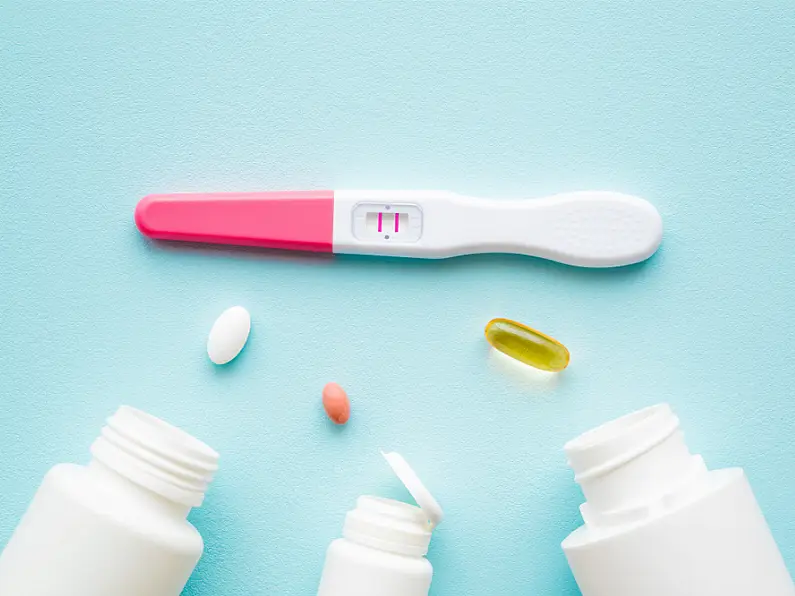Finding out you are pregnant can be one of the most exciting times of a woman’s life.
This is often followed by questions like what can I eat now that I am pregnant? What should I eat? How much should I eat? Am I eating enough? I am eating too much? Should I be taking supplements? Which supplements are best?
So many questions!
However, there is no one size fits all for supplementing your pregnancy.
Nutritional recommendations are based on the patient's pre-pregnancy Body Mass Index (BMI), presence of any medical conditions prior to the pregnancy, and any nutritional deficits that may have been present prior to pregnancy.
Eating for two or more
Adequate nutrition will assist in the development of your baby and the overall health and wellness of the mother during the pregnancy.
However you should NOT be eating for two or more!
At your first consultation, your Obstetrician will discuss nutrition with you and make recommendations based on your medical history and examination.
If there are concerns about your nutrition you may be referred to a Nutritionist.
What can I eat?
For women who have no additional conditions impacting their nutritional choices, a balanced diet is usually recommended.
This should include:
- Fruits and vegetables: Please wash thoroughly and if possible peel to reduce the risk of consuming any parasites or pesticides
- Proteins: Meat, eggs, seafood, beans, peas, lentils and soy products for strict vegetarians slight modifications may need to be made in consultation with a nutrionist.
- Oils: Preferably vegetable oils and food rich in oil like nuts and seafood
- Dairy: Milk, cheese. For strict vegetarians Soy milk which have been fortified with Calcium maybe needed. Please discuss with your Obstetrician/Nutritionist
- Carbohydrates: Good source of energy
- Fibre: May assist with constipation
Safe practices and foods to avoid
The aim of food safety in pregnancy is to reduce the intake of food groups that may be toxic or poisonous, and reducing the risk of food-borne infections.
Practices that will assist with reducing the risk of food-borne infections include:
- Frequent hand washing (prior to preparation and consumption of food)
- Eating fully cooked meats, fish, poultry and eggs
- Avoiding deli meats but if these aren't possible to avoid, then ensure they are fully cooked
- Avoiding unpasteurized dairy
- Washing fruits and vegetables thoroughly.
Coffee
A general recommendation for caffeine intake is less than 300mg per day.
The approximate content of caffeinated beverages can be found online.
So a cup of coffee may not be harmful on its ow but you may have to chose between that cup of coffee and a caffeinated soda and even chocolate.
Choose wisely!
Seafood high in mercury
Seafood high in mercury can be harmful in pregnancy.
The FDA has a list of mercury content in seafood available online to guide your decisions.
Liver
Excessive liver consumption may be harmful due to high vitamin A exposure and is best avoided.
Supplementing your pregnancy
Pre-Natal Supplements are recommended by the American College of Obstetricians and Gynaecologists (ACOG). These supplements have been found to improve pregnancy outcomes in populations were nutritional deficiencies are common.
Folic acid is recommended in pregnancy to reduce the risk of neurological malformations. Many pre-natal supplements do contain Folic acid, however some patients may require additional supplementation. Women who have anaemia, seizures or are known to have Folate deficiency should discuss with their Obstetrician if they need additional supplementation.
Iron is vital because Deficiency Anaemia is the most common anaemia in pregnancy and women who have been found to be anaemic on their blood investigations after their first visit may require additional Iron supplementation. During the early third trimester, additional Iron may be required due to the physiologic anaemia of pregnancy.
Weight Gain
Weight gain in pregnancy is dependent on a number of factors including pre-pregnancy weight and number of foetuses.
For women with a singleton pregnancy and low BMI, pre-pregnancy weight gain up to 40lbs (18kgs) is considered normal.
For women with an average BMI pre-pregnancy, weight gain up to 35lbs (16kg) is considered normal.
For women with an elevated BMI pre-pregnancy, we advise weight gain not greater than 25lbs (11.5kg).
Conclusion
Adequate nutrition in pregnancy will assist in surviving the roller coaster of physical and emotional challenges a mother will experience during the nine months and provide the growing child with the building blocks for future health and wellness.







